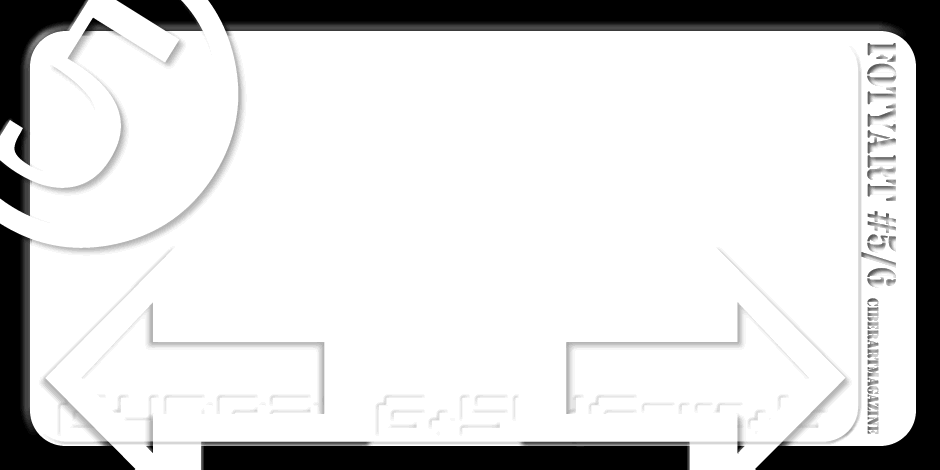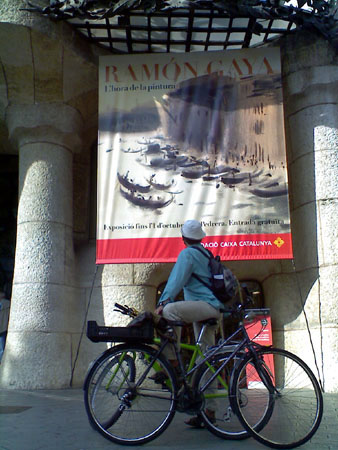
 |
RAMON GAYA

la Pedrera presenta una retrospectiva
donde
se podrá gozar a partir del día 18 de Julio 2006
del artista murciano en todas sus facetas;
pintura, dibujo, poesía, ensayo....
CARTA A J.G., 19 DE
MAYO DE 1928:
A mi siempre me preocupan los finales; en los cuadros- los contornos de los
cuadros, quiero decir-, en las conversaciones, en las cartas...yo no quisiera
darles este final brusco y rapido que les doy siempre; quisiera terminar en
voz baja, con una tinta especial para los finales, una tinta sin color ya,
muy difuminada en el papel...
LETTER TO J.G., PARIS,
MAY 19, 1928:
Endings always worry me: in paintings- the outlines of the paintings, I mean-,
conversations, in letters... I want to avoid that sudden, brusque end that
I always come up with; I would like to close with a low voice, with a special
ink for endings, an ink that has no colou r being now faded into the paper...
EL SILENCIO DEL ARTE,
1951:
El gran arte no es nunca un problema, sino un destino; por eso se arrima tanto
a la ignorancia abierta y huye del saber cerrado. El arte es Destino, y el
dia en que esto se llegue a comprender dejaremos de oír todo ese rosario
de obligaciones que los diferentes estetas le han echado siempre encima- que
el arte debe ser bello, o moral, o expresivo, o imaginativo, o copiador, o
abstracto-, y se caerá en la cuenta de que el arte, como destino que
es, no lo podemos construir nosotros, ni siquiera hacerlo nosotros, sino escucharlo
y complirlo.
THE SILENCE OF ART,
1951:
Great art is never a problem but a destiny; this is why it leans more towards
open ignorance than towards closed knowledge. Art is Destiny, and the day
when this is understood is the day we stop hearing this litany of obligations
that aesthetes have always held it responsible for- that art should be beautiful,
or moral, or expressive, or that it should copy or be abstract- the day we
realise that art, as the destiny that it is, can not be built by us, nor can
we even do it but instead have to listen to it and fulfil it.
BALCON ESPAÑOL,
1952:
Al decir Barcelona pienso en esa combinación que siempre me ha parecido
un tanto extraña: gótico y mar. Porque el gótico, tan
preso aún en la Edad Media, parece suceder tierra adentro; el mar,
en cambio, es Renacentista, es decir, transparencia de la Antigüedad.
Pero en Barcelona lo gótico y lo marino conviven, se hablan, se sufren.
SPANISH BALCONY, 1952:
Whenever I say the word Barcelona, I think of that combination that has always
seemed a little bit strange to me, the pairing of the Gothic and the sea.
Because the Gothic, still immured in the Middle Ages, seems to happen inland;
the sea, in contrast, is Renaissance, in other words, the transparency of
Antiquity. In Barcelona, however, the Gothic and the maritime co-exist side
by side, they talk and tolerate each other.
MILAGRO ESPAÑOL,
1953:
…seguir a Picasso- y tenemos la obligación de seguirle, puesto
que parece haberle sido encomendada la clave del presente- no consiste, como
han supuesto tantos, en imitarle, sino envolver a tomar la Pintura exactamente
donde él la interrumpió y, libre ya de todo ese cargamento inútil
que la envenenaba, cumplila o ir cumpliéndola, porque la verdad es
que su cumplimíento no acaba nunca.
SPANISH MIRACLE, 1953:
...following Picasso- and we have the duty to follow him, since he seems to
have been entrusted with the key to the present- does not, as so many have
imagined, mean imitating him. Instead, it means going back and taking up Painting
once again exactly where he interrupted it and now that it free of that entire
useless load that poisoned it, carrying it out, because the truth is that
it is never fully completed.
RETALÉS DE UN
DIARIO, 1956- 1963:
Barcelona, 4 de julio 1960...Después de veintún años
de exilio, donde se vuelve, en realidád, no es a España, sino
a 1939.
EXTRACTS FROM A DIARY,
1957- 1963:
Barcelona, July 4…After twenty-one years in exile, one returns not to
Spain, in fact, but to the year 1939.
EPÍLOGO PARA
UN LIBRO DE POEMAS DE JOSÉ BERGAMÍN, 1973:
Los viejos pintores y poetas chinos y japoneses tuvieron muy clara consciencia
de todas estas cosas, y mientras nosotros , llenos de frívola petulancia
occidental, íbamos acumulando novedades, modernidades, invenciones,
experimentos, conquistas- hasta formar todo ese riquísimo basurero
en el que nos encontramos-, ellos se mantenían, durante más
de veinte siglos, no inmóviles, como se suele pensar, sino firmes en
su esencia única.
EPILOGUE FOR A BOOK
OF POEMS BY JOSÉ BERGAMÍN, 1973:
The Chinese and the Japanese painters of ancient times had a very clear conscience
about all things, and wheras we were full of frivolous, western petulance
and went about accumulating novelties, modernities, inventions, experiments
and conquests- till we accumulated this extremely rich heap of rubbish we
now find ourselves in- they remained for over twenty centuries not immobile
as it is often thought, but firm in their unique essence.
DEL PINTAR: SONETOS II., III. Y IV., 1977:
El atardecer es la hora de la pintura- Titian
Pintar no es ordenar,
ir disponiendo
sobre una superficie, un juego vano,
colocar unas sombras sobre un plano,
empeñarte en tapar, en ir cubriendo;
pintar es tantear- atardeciendo-
la orilla de un abismo con tu mano,
temeroso adentrarte en lo lejano,
temerario tocar lo que vas viendo.
Pintar es asomarte a un precipicio,
Entrar en una cueva hablarle a un pozo
Y que el aqua responda desde abajo.
Pintura no es hacer, es sacrificio,
Es quitar, desnudear y trozo a trozo,
El alma irá acudiendo sin trabajo.
ON PAINTING: SONNETS II:, III. AND IV, 1977:
Twilight is the hour of painting- Tizian
Painting is not ordering, arranging
Across a surface an array in vain,
Placing shadows so they lie on a plane,
Nor about covering or overlaying;
Painting is probing, feeling- at twilight-
The edge of an abyss with your hand,
Fearful of reaching into the distance,
Of touching what appears before your eye.
Painting is leaning out over a precipice,
Entering a cave, talking to a well
And the water answering from bellow.
Painting is not doing but sacrifice
It is to remove and so to unveil;
Gradually, effortlessly comes the soul.
CARTA A ANDRÉS,
1978:
...yo no he dicho que la Modernidad no exista, sino tan sólo que no
importa, que no puede importarnos, porque eso tan endeble, tan de superficie,
tan de pasada, que llamamos Modernidad, no tiene valor propio, valiosa sustancia
propia. La Modernidad no es, no puede ser- nunca- , valor, como frívola
y descuidadamentente hemos terminado por suponer, la modernidad no puede ser
mas que un simple estado por el que pasan- y pasan irremediablemente- las
más o menos pobres obras de arte nuestras, pero sin formar parte- carne-
de ellas...
LETTER TO ANDRÉS,
1978:
…I did not say Modernity does not exist but only that it does not matter,
that it cannot matter to us because what we call Modernity- such a frail,
superficial and fleeting thing- has no value in itself, no substance of its
own. Modernity is not nor can it- ever- be a value, as we have carelessly
come to suppose. It cannot be more than a simple state through which our more
or less feeble works of art pass- and they do pass, ineluctably- but which
never forms a part of them or becomes one with their flesh…